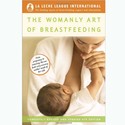I discovered this article the other day entitled “Older age, extra pounds may delay breast-milk production” and the light just went off! This is EXACTLY what happened to me! I was 37 when my son was born and just over 200lbs. It took 6+ days for my milk to finally come in and my baby was dehydrated and we were both frustrated! There are many moms who may have given up in my situation – and my pediatrician was pushing me to supplement – but I was determined to breastfeed my baby.
So – I did supplement, about 10 cc of formula ONCE – then I took another route – my baby was lethargic and not urinating because he wasn’t getting enough to eat. So I fed him every 2 hours during the day and every 3 hours at night – waking him if he was asleep – and Voilà! It worked. Within 2 days my milk came in full-force and my baby was eating, less lethargic and urinating normally!
This article states that moms who are older than 30-35 in age and overweight may have delayed milk production. And since those giving us advice may or may not be aware that this is NORMAL for our situation, they give us advice that undermines our ability to be successful breastfeeding. Anytime you are giving your baby a bottle instead of breastfeeding, you are missing added stimulation that your body needs to make milk, hence delaying the already delayed process even further.
If this happens to you, the authors of the article encourage you to contact a lactation consultant and persist with your desire to breastfeed your baby.
With some support, Nommsen-Rivers said, mothers with delayed breast-milk production will “do just fine.” She noted that nearly all new moms — 98 percent — have their milk come in within a week.
For me, I was both – older and overweight – so I got the combined effects of delayed milk production for each – delaying my milk even further.
To help support early breastfeeding success, the American Academy of Pediatrics recommends that women ask to have their newborn placed in skin-to-skin contact with them immediately after birth so that they can breastfeed. Frequent feedings in the early days are also important, Nommsen-Rivers said. It is often recommended that women breastfeed every two hours, but she suggested that new moms try to breastfeed whenever their newborn “shows an interest,” with cues such as “smacking” his or her lips.
Were you above age 30-35 when you gave birth? Did you have any delays in your milk production? Were you overweight? Did you see any noticeable delay due to either of these two factors? The great news is – we can now educate our healthcare providers to encourage moms with delayed lactation to nurse more frequently rather than to supplement – and help those moms to have successful breastfeeding experiences with their children! I felt such great relief after reading this article – it explained so much of my early breastfeeding difficulties. Please leave a comment and share your experiences!











[…] This post was mentioned on Twitter by Judy Masucci, tattooed_mummy and Momma Webb, Tina. Tina said: RT @MommyNews: Older Moms And Overweight Moms May Have Delayed Breastmilk Production: http://bit.ly/91ql3Y #breastfeeding, #bfing #bfcaf … […]
[…] milk took over a month to come in – and she was able to nurse no problem. You can also read this story – it is about some of the causes for delayed onset of milk production and it was very […]
[…] Older Moms And Overweight Moms May Have Delayed Breastmilk Production: This article really hit home for me and explained so many things that happened to me when I had my son. If you are a mom iin her mid-thirties or higher or an overweight mom – read this to help you know what to expect. […]
[…] lactogenosis. This happened to me, with my milk coming in around day 5, rather than day 3. Judy at A Mother’s Boutique had the same issue. This is important to note because it could be a potential “booby […]
Hi I m 36 years of age had a c section 21 days ago but my milk is still very slow. I m feeding my bub 120 Mil of formula every 3-4 hours. I m about 82 kg I may be about 15 kg overweight
36years…second child. It’s day 3 and I am producing less than5cc of colostrum. very frustrated. I want to cry. Advice?
Hi Tina, on day 3, all you should be producing is colostrum. Stock with it, your mature milk will come in soon! The best thing to do is to nurse your baby as often as possible – as nursing will help your milk to come in sooner. Stick with it! You are doing great. If you don’t see your mature milk coming in in the next day or two, then I would call a board-certified IBCLC lactation consultant. HUGS!